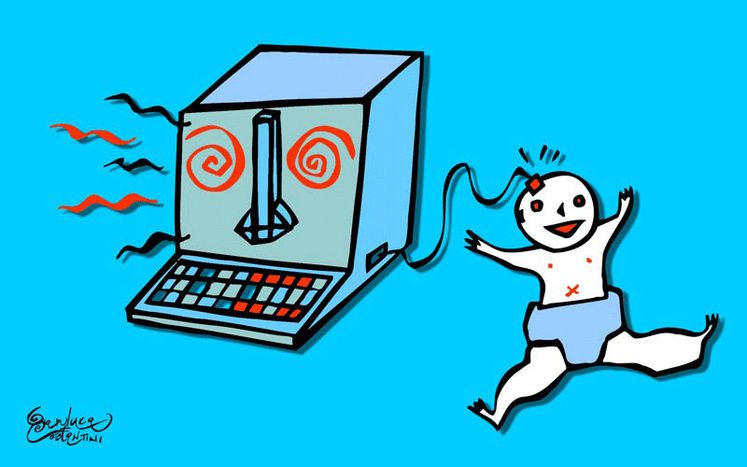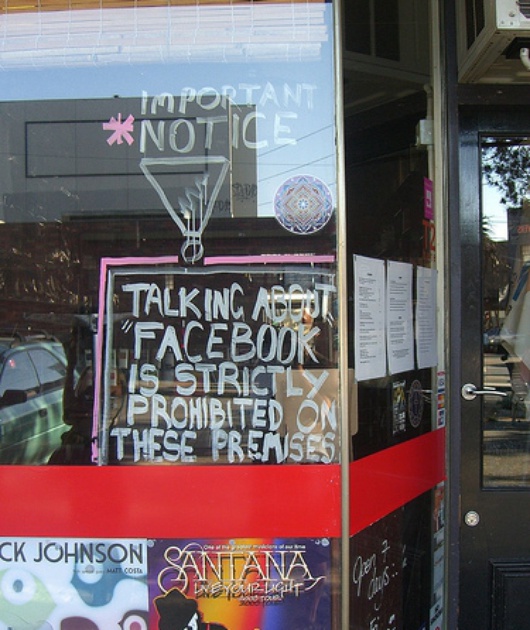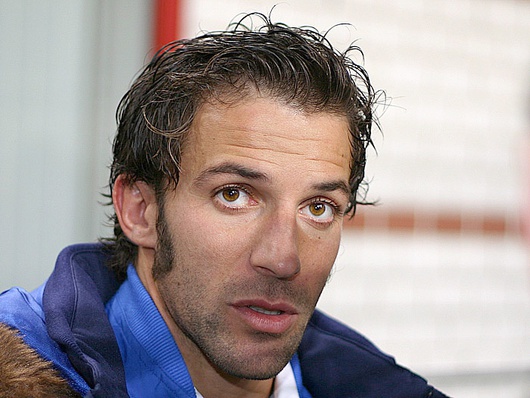
Facebook privacy - what’s yours is mine
Published on
Translation by:
 linn eide
linn eide
Finding the nice French guy from the bar, showing your American high school mates new photos, keeping in touch with your Spanish friend - the social network renders this possible and profits from the personal details of its 175 million users worldwide.
Facebook backtracked on changing its 'terms of use' in February
The coffee is on the table, the newspaper lying next to it – a good start to the morning. But then on page three you discover a picture of yourself; it's there without your consent and has juicy details and photographs from your private life. Impossible, you mutter to yourself, I’m not famous. That’s what Marc L. from Bordeaux thought until he opened a magazine one day and found himself gazing at himself. The French magazine Le Tigre wanted to point out the dangers of publicising personal details on the internet. It came across Marc L. by chance and then put the pieces of his life, which were floating about in the virtual world, together as a portrait. The most personal information was found on Facebook, where the boundaries between private and public are blurred almost entirely.
Give me the data
 The majority of users do not think about what happens with the amount of data that is collected during membership – the small print of terms of use is hardly read by anyone. It states that all profile details are used for advertisement purposes. As if that was not enough: even information from other sources such as magazines, blogs and instant messaging services are collected by Facebook. This is to 'provide more useful information and a more customised experience' according to the general terms and conditions act. And what happens to the data once you leave Facebook? According to the press office, the information is simply 'deleted', However, up until now it was common that Facebook kept security copies of the profile in their databank for a certain period of time.
The majority of users do not think about what happens with the amount of data that is collected during membership – the small print of terms of use is hardly read by anyone. It states that all profile details are used for advertisement purposes. As if that was not enough: even information from other sources such as magazines, blogs and instant messaging services are collected by Facebook. This is to 'provide more useful information and a more customised experience' according to the general terms and conditions act. And what happens to the data once you leave Facebook? According to the press office, the information is simply 'deleted', However, up until now it was common that Facebook kept security copies of the profile in their databank for a certain period of time.
Facebook now wants to change this: with the uploading of data all users are to surrender their rights – for life. Data protectors and users were appalled and the following wave of protest was so large, that Facebook boss Mark Zuckerberg was forced to ruefully withdraw the changes on 18 February. This would change, he immediately wrote on his blog, as parts of the terms of use are 'exceedingly formal and protective.'
The profiles of adolescents are no longer to be made available through search engines
Facebook’s terms of use can generally be changed 'anytime and without notice'. In face of such an uncontrollable flood of information, the EU recently intervened. On 10 February, the designated 'safer internet day', the European commission signed an agreement for the protection of minors with several social networks such as Facebook. Minors in particular have problems identifying the dangers of such social networks: amongst other things, the profiles of adolescents are not to be made available anymore through search engines.
Of mafiosi and exposed breasts
 What is also difficult to control is the authenticity of profiles. Italian football player Alessandro Del Piero filed a lawsuit when unknown persons set up a Facebook profile under his name portraying him as a Nazi sympathiser. There are increasingly cases in which profiles are hacked and messages asking for donations are sent to the user’s friends.
What is also difficult to control is the authenticity of profiles. Italian football player Alessandro Del Piero filed a lawsuit when unknown persons set up a Facebook profile under his name portraying him as a Nazi sympathiser. There are increasingly cases in which profiles are hacked and messages asking for donations are sent to the user’s friends.
In Italy there was great uproar about profiles and fan groups for leading mafiosi. Up until now 'controversy' has not been reason enough for Facebook to delete such sites: a social network should be a place in which to discuss 'differences in opinion'. Other things, however, are willingly censored: Towards the end of last year, Facebook removed photographs of breastfeeding mothers. The press office replied that whilst breastfeeding was 'beautiful and natural', they had to intervene according to the terms of use in case of full exposure of the breast in photographs.
How to exchange friends for hamburgers
Even politics has discovered Facebook for itself. European politicians follow suit after US president Barack Obama’s success in the 'participatory' web. Facebook pioneer is José Manuel Barroso, president of the European commission. His conservative profile does not reveal private details such as hobbies or favourite books, but in view of the European elections in June 2009, it is nevertheless a first step towards encouraging urgently needed voter turnout amongst youths. Barrosso meanwhile has 103 friends – not very many in the Facebook universe, where quantity mostly comes before quality.
 Last year Burger King launched a somewhat unusual advertisement campaign alluding to these pseudo-friendships: Whopper Sacrifice promised every user a burger in exchange for ten friends. A friendship is thus barely worth a few cent. Facebook ended this campaign prematurely with the justification that it goes against Facebook’s leading principle, the networking of people. If from now on, after reading this article, you enter Facebook with an uneasy feeling but can nonetheless abstain from the site; there is withdrawal help at hand: Facorette.
Last year Burger King launched a somewhat unusual advertisement campaign alluding to these pseudo-friendships: Whopper Sacrifice promised every user a burger in exchange for ten friends. A friendship is thus barely worth a few cent. Facebook ended this campaign prematurely with the justification that it goes against Facebook’s leading principle, the networking of people. If from now on, after reading this article, you enter Facebook with an uneasy feeling but can nonetheless abstain from the site; there is withdrawal help at hand: Facorette.
Translated from Was dein ist, ist auch mein - Facebook und die Privatsphäre


